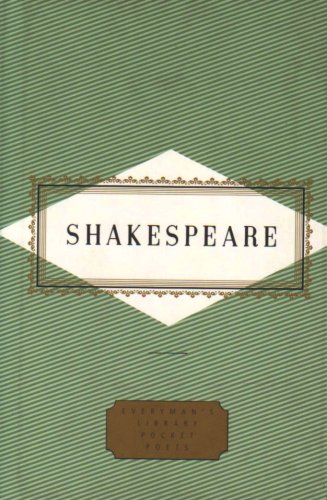Customer Services
Copyright © 2025 Desertcart Holdings Limited


Everyman's Library Poems Book
H**R
ITS SHAKESPEARE
It’s an Arden Shakespeare of William Shakespeare’s poetry. Need I say more?The notes are exceedingly helpful as always and the poetry is beautiful.
S**.
Uni reading for English 1st year
Book for Uni for daughter at a great price
J**S
Skilful advocacy
In the opinion of the two editors of this volume (Katherine Duncan-Jones and HR Woudhuysen) Shakespeare's narrative poems are 'the most neglected items in the Shakespeare canon'. Ironically, it was as poet rather than dramatist that Shakespeare made his name, and both 'Venus and Adonis' and 'The Rape of Lucrece' were immediate 'hits' with Elizabethan readers. As advocates of the poems, the editors of this 3rd edition Arden hope to attract a new generation of enthusiastic readers. (The previous editor, HT Prince was, by contrast, one of their many detractors.) The expectation here, moreover, is that these new readers will make up their own minds about the arguments being presented, rather than, simply, being passive recipients of scholarly wisdom - a laudably democratic ideal characteristic of Arden3.But what of the arguments? The poems are presented as works which offer things that the plays either cannot or do not: a more comprehensive anatomising of inner mental states and a stronger affinity with the visual arts. However, the Introduction's attempt to link Shakespeare with Renaissance painting - even going as far as to suggest that he had an acquaintance with art theory - lacks concrete evidence. Assertions like 'He could ... have seen an example of an Italian painted battle scene in a nobleman's house', seem over-speculative, an impression that is reinforced by the next sentence: 'Such access is not implausible.' Not implausible, perhaps, but not entirely convincing, either.One of the real strengths of Duncan-Jones' previous Arden edition (Shakespeare's Sonnets, 1997) was its richly insightful analysis of the sequence. Its section on numerological significance was, I thought, profound and persuasive. She makes a similar attempt here (for Duncan-Jones' hand played the greater part in the Introduction, we learn; Woudhuysen's in the Commentary). She considers that the total number of stanzas in 'Venus' - 199 - is suggestive of incompleteness, while the poem's exact mid-point, with Adonis atop Venus but refusing to consummate, has special importance because of its pivotal positioning. Were Elizabethan readers so alert as to pick up on such mathematical and structurally abstruse matters? Possibly, but again the arguments seem more hopeful than convincing here.Yet this Introduction has its own undoubted strengths. It is particularly successful in placing the poems in their historical context (plague-ridden London, in the case of the 1593-4 narrative poems). As one of the most recent (2007) additions to the Arden series, this edition is able to refer to such events as Greg Doran's critically acclaimed 2004 'Venus and Adonis: A Masque for Puppets' production at The Other Place, Stratford, as well as influential criticism from the first decade of the C21, in which (often) feminist writers have helped to restore Shakespeare's non-dramatic work to the limelight.Yet again, then, it is Arden that sets the standard. This third edition represents a significant advance on the second and is currently unrivalled as a comprehensive guide to this hitherto neglected facet of the Shakespeare canon (and apocrypha).
B**K
Excellent
This Arden Shakespeare book contains the two major narrative poems and the few shorter poems. The introductory essay is a major contribution. It shines a bright light on the poems, their context and history. The essay shows how these poems have been relatively neglected by Shakespeare studies, why they should not be, and the essay demonstrates what fertile ground the poems offer to those who read and consider them.It is a pleasure to follow the authors as they take on the "riddle" of the extremely unusual and remarkable poem "The Phoenix and the Turtle".The essay is super-brilliant. It considers what's been said in the past, as well as the latest ideas, and makes some discoveries of its own. The style gets a bit academic at times, but it's very sharp.The poems themselves are astonishing, to read them is an opportunity to experience Shakespeare as he writes almost novelistically -- immersing a solitary reader.
B**E
It’s portable
It’s a good little edition of his sonnets and poems and is portable
Trustpilot
1 month ago
1 day ago